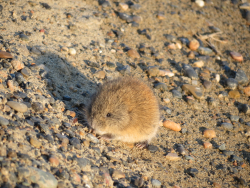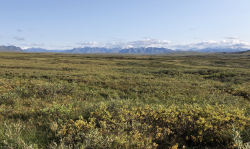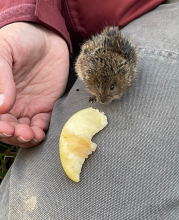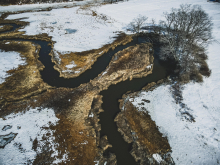Update
Sadly, due to complications with Covid, Jenn is unable to join "Team Vole" in the field for 2022.
What Are They Doing?

Where Are They?

Latest Journals

Dr. McLaren is a faculty member in the Department of Biological Sciences at the University of Texas in El Paso. Her research group focuses on the changes in plant community composition that result from environmental change (such as warming or nitrogen deposition), changing herbivore populations, shifts in species ranges and changing land management populations. We examine both how plant communities may change, but also what the effect of that change will be on the functioning of ecosystems, such as their ability to cycle nutrients, decompose plant litter and store carbon. We conduct our research in northern ecosystems, including alpine tundra and boreal forest in Northern Canada (Kluane Lake Research Area, Yukon Territory) and arctic tundra in Alaska (Utqiagvik and Toolik Research Station in Alaska), and also in the deserts of the Southwestern USA. You can read more about our research themes and team at www.jenniemclaren.com.

Austin Roy holds a PhD in Ecology and Evolutionary Biology from the University of Texas at El Paso. His research focuses on wildlife-ecosystem interactions, wildlife conservation, and vector-borne diseases. In particular he is interested in how species shape their environments and how changes in wildlife populations and communities affect ecosystem function. He conducts his work in various ecosystems including tundra, deserts, forests, wetlands, and periurban environments. For this project, Austin acts as field lead for our Utqiaġvik site and collects and analyzes data to examine how small mammal herbivores influence soils, plant communities, and carbon cycling in the arctic tundra of Northern Alaska. You can learn more about his research at https://www.researchgate.net/profile/Austin-Roy.



